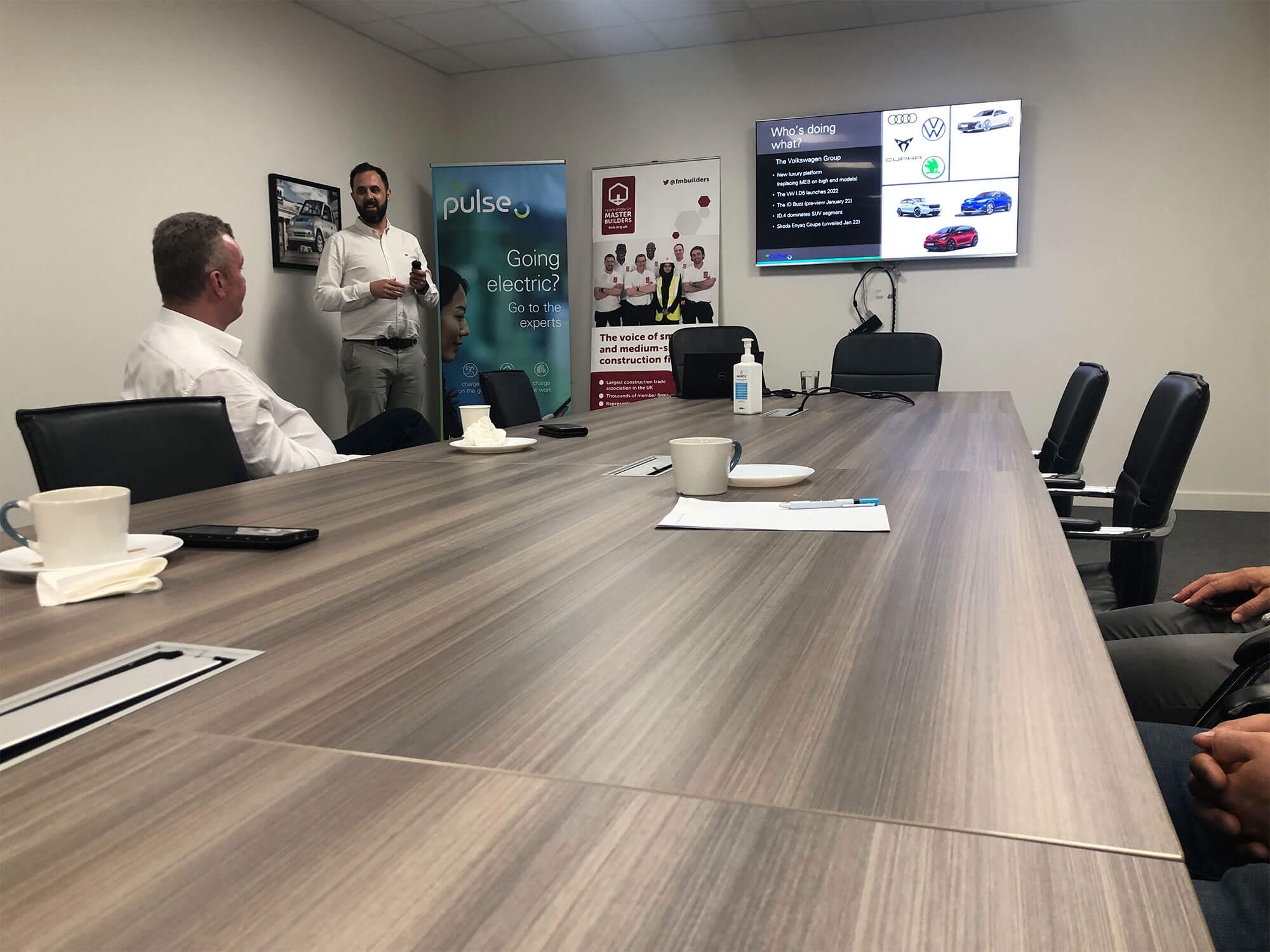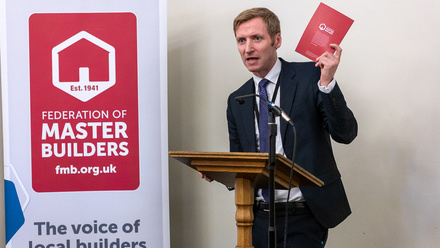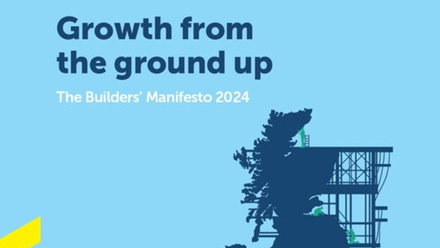BP have recently partnered with the FMB to give our members some great discounts, so I thought it only right to go along and find out more about what they are offering, and to examine the facts for anyone interested in buying an electric vehicle (EV).

Readying Britain for EVs
The UK Government has empowered councils around Britain and Northern Ireland to assist in efforts to ready their transport networks for widespread adoption of EVs as part of a plan to reach net zero carbon emissions, with a target to end the sale of petrol and diesel vehicles by 2030.
The BP Evec Centre in Milton Keynes sought to supplement these efforts when it was established a few years ago. At the centre however, staff have noticed that customers have been given misleading information on or have no knowledge at all when it comes to electric vehicles.
A brief history of Electric Vehicles
This has been done before! There were electric cars around 100 years ago but their popularity declined in the 1920s due to cheap oil and the mass-produced Ford Model T. However due to increasing prices, EV research began once again in the 1980s.
In 2000, Toyota launched the Prius, which was followed by the Nissan Leaf in 2010.
Today 2022 there are now over 705,000 plug-in cars on the road of which 365,000 are purely electrically powered.
How do I charge an EV?
EVs can be charged at home from your mains power connection. There are also a number of options for "rapid charging", which uses more advanced equipment to recharge your vehicle's battery more quickly than is possible using a home charger.
Most rapid charging figures are calculated during 10-80% state of charge, this is because charging slows down at the high and low ends of the battery's capacity to avoid damage.
On kW vs kWh:
- It is important to understand the difference between kW and kWh.
- A kW is a measure of power provided and can be used to understand how fast a charger can deliver power.
- A kWh is a unit of energy storage and can be used to measure the amount of energy in the battery.
Charging your vehicle at home
- Home-charging stations typically charge at a rate of 7 kW.
- The average charge period is eight hours overnight.
- The charging mechanism is wired directly into your home’s electrical supply, your tariff dictates what you pay and where the energy comes from.
- Charging your EV in this manner offers a safer alternative to using a traditional three-pin socket.
- Most choose to charge their vehicles from 5pm in the evening, the best electricity rates are typically available between 12am and 5am.
Destination (Fast) Chargers
These facilities allow you to charge your EV whilst shopping, eating, working etc.
- They typically charge at a rate of 7 – 22kW.
- The average charge time is eight hours.
- This method uses two universal sockets and can serve two electric cars at once.
- They are most often found in long-stay destinations.
- They are not designed to be used as a primary source of charging.
Rapid Charging Points
- These typically charge at a rate of 50kW.
- They offer multiple plug types to cover most EVs.
- They can be found on motorway services, restaurants and petrol stations etc.
- They have been designed as a “keep-you-moving” solution allowing you to stop, charge and go.
Ultra Rapid Charging
This is the cutting edge of EV-charging technology, which can offer:
- A typical charge rate of 150kW, with a maximum of up to 350kW.
- A charge duration averaging 20 to 40 minutes.
- This method typically uses the same plug types as Rapid Chargers.
How long will an EV battery last?
EV batteries are expected to outlast the life of the car, whilst you can expect some degradation in later life, these batteries are designed to never be replaced.
The standard market warranty is eight years or 100,000 miles. In vehicles BP have examined, they see in excess of 140,000 miles being clocked up whilst retaining 75-80% of the vehicle’s original range.
What happens at the end of my battery’s life cycle?
EV batteries are almost entirely recyclable with only trace components resulting in disposed waste.
Is maintaining an EV expensive?
Thanks to the fact that EVs use less parts than their petrol or diesel-powered counterparts, you can expect less problems in terms of maintenance.
This could be the commercial vehicle owner’s dream scenario as EVs offer massive resilience to high milage usages.
As long as you maintain the brakes, tyres and suspension (which remain the same as traditional vehicles) and depending on the manufacturer, you can expect to need to service your EV less often.
Why you should consider investing in an EV
- EVs are evolving all the time,
- Most now offer a standard range of ~200 miles.
- Rapid charging is now possible in around 40 minutes.
- They can now be purchased for around £30K.
- The market for the provision of various types of chargers available for consumers with EVs is currently outgrowing the EV industry itself.
- There are now mobile apps available to help you navigate and understand different charging options.
- One main rapid-charging point production standard is now used by almost all manufacturers, which is designed to still support older vehicles as the industry continues to scale.
Exclusive SME bp Fuel & Charge card offer for FMB members
Whether your business has one or more vehicles, bp can help you reduce costs while moving towards electrifying your fleet with our helpful solutions. No matter what type of vehicle(s) you have, EV or non-EV, the SME bp Fuel & Charge card is the all-in-one solution that suits all fleets’ energy needs.
To find out more about the exclusive offer available to FMB members, check out the bp Supplier Directory page today.
*Please note: All figures referenced in this article were provided by bp Pulse.







